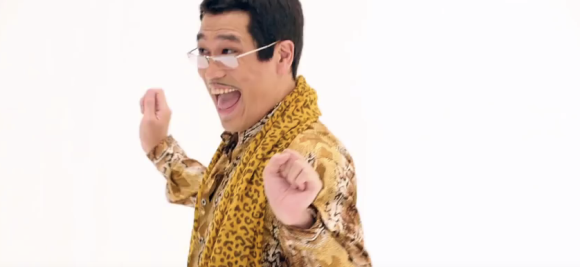
We’ve included some events and scandals that were big in Japan, so be sure to find out what they are!
It was tough deciding, but the RocketNews24 team of writers has settled on what we feel were Japan’s top ten events of the year. We organized our list more or less chronologically, from January to December. It certainly proved to be a year of surprises, so let’s take a look at the year in review.
1. SMAPの解散 – SMAP Break-up
The big shocker to start off the Year of the Monkey was the rumor that the 25-year-running five-member boy band SMAP would be breaking up at the end of the year. The band was quick to deny the rumors and apologize to their fans, but in the end these denizens of the top of the charts did decide to split up.
It’s hard to imagine the J-pop world without the stalwarts who’ve reportedly sold over 35 million records. But being entertainers in their own right in not just music but also TV, radio, film and theater, means we’re still bound to see the members Masahiro Nakai, Goro Inagaki, Tsuyoshi Kusanagi, and Shingo Katori repeatedly in the future.
2. ベッキ – Becky
Another major event in the entertainment industry also unfolded in January when a torrid love affair took the nation by storm. The Japanese media relished covering the love woes of Japanese talent and TV personality “Becky.” One of our RocketNews24 writers points out that “Outside of Japan, people in show-business having affairs is pretty mundane and almost expected to some degree.” But Becky lost all her sponsors and TV show appearances (she appeared as a panelist on no less than 10 TV variety shows) on account of her affair with a married musician.
While many foreigners living in Japan might feel this is just hyped up non-news, nonetheless, the entire nation was in on the drama when Becky claimed she thought Enon Kawatani (of the band Gesu no Kiwami Otome) was single, when in actuality he was married. Kawatani admitted that he had married secretly, sans an official announcement. Becky made tearful apologies on TV, wrote a sorry letter to Kawatani’s wife, and endured a forced temporary leave of absence–all the usual Japan-worthy mental prison sentences.
Why Becky got all the bad PR and not the equally guilty Kawatani became a topic of debate, but having talked with some Japanese people myself, they were quick to point out that unlike Kawatani, Becky had an image of being sweet and pure, so many Japanese people felt let down. Uh-huh. There was also a question about whether she was paid by Shukan Bunshun for her story. Ohhh. At any rate, Becky is still struggling to return to her former level of popularity with the general public.
3. 熊本地震 – Kumamoto Earthquakes
A series of earthquakes rocked Kyushu’s Kumamoto region from April 14-16 this year, killing around 50 people and injuring over 3,000. Extensive damage to buildings and infrastructure endured in Oita and Kumamoto prefectures included the popular Kumamoto Castle. The quakes added to the woes of residents living near the active Mount Aso volcano that has regularly been experiencing small eruptions.
▼ Profits of these Kit Kats go to help earthquake victims.
Within days of the first quake, food chains Yoshinoya and Sukiya had set up mobile kitchens and were distributing free beef bowls to victims. Nestlé Japan released a new flavor Kit Kat (pictured above) promoting the flavors of Kumamoto tea, a portion of the profits of which went to help the Kumamoto victims via the Japanese Red Cross.
4. オバマ大統領の広島訪問 – Obama’s visit to Hiroshima
On May 27, the long-awaited visit by a sitting U.S. president was finally realized by the Japanese people when Barack Obama made a speech at Hiroshima, one of only two cities to have been hit by an atomic bomb. Since the Japanese people were not after an apology, but recognition of the event, Obama’s visit was seen as a historic step forward in bringing closure to past wartime aggression.
In addition, Obama’s call for a “world without nuclear weapons” was widely cheered here. The successful visit prompted Prime Minister Shinzo Abe to reciprocate with a visit to Pearl Harbor. Hiroshima City honored the presidential visit with one of its restaurants offering the Obama Bowl, a beef-bowl made with American beef and Hawaiian salt.
5. 日本憲法の再解釈 – Reinterpretation of the Constitution
Shinzo Abe’s reinterpretation of the Japanese constitution continued to be major news in 2016, especially concerning the issue of collective self-defense. Unable to amend the constitution, Abe first introduced the idea of “reinterpretation” in July 2014 in response to increasing provocative actions by China and rising nuclear capabilities of North Korea.
The reinterpretation threatens Article 9 and Japan’s pacifist constitution represented by Japan’s Self-Defense Forces and supported by the significant American military presence. While Article 9 states that Japan will forever renounce war and only seek to defend itself from attack, the controversial collective self-defense reinterpretation, much to the consternation of some other nations, allows Japan to aid in the defense of its allies.
6. 退位問題 – Possible abdication of emperor
▼ The Emperor and Empress’s royal wedding, 1959.
In July, Emperor Akihito, who inherited the throne after his father Hirohito’s death in 1989, expressed his will to abdicate. While the majority of Japanese people are empathetic and agree that their beloved emperor–who had worked tirelessly to heal the wounds of WWII–deserves a break from official duties, he would be the first monarch to abdicate in 200 years.
Previously when child emperors were common, abdication was not unusual, but in more recent times emperors have fulfilled their duties until death. As a result, no allowances have been made for a modern emperor’s abdication and panels have been formed to discuss how to deal with the situation. With health problems and failing memory, His Majesty wishes to hand the reins to his son, Crown Prince Naruhito.
7. ポケモンGO – Pokémon Go
Screenshot/GooglePlay/Pokémon Go (edited by RocketNews24)
The beginning of the summer saw the Pokémon Go phenomenon take root as people everywhere got out of the house and went searching for the augmented reality game’s characters in parks, streets, and even controversial places such as the Hiroshima Peace Park. Young and old alike tested out Niantic’s new game which allowed players to hatch eggs, battle at gyms, and graduate to different levels via the app on their smartphones.
The fact that the augmented reality game took much of the world by storm even before it was released in Japan prompted the Japanese government to issue safety warnings (including advice to be aware of heat stroke) before the Japan debut and we at RocketNews24 felt obliged to give some practical advice on six things players should watch out for in Japan. The most talked about game necessitated popular follow-up articles on everything from advice on hatching Pokemon eggs to offering the top sight-seeing spots in Tokyo to catch the little critters.
8. 小池 百合子とオリンピック – Yuriko Koike and the Tokyo 2020 Olympics
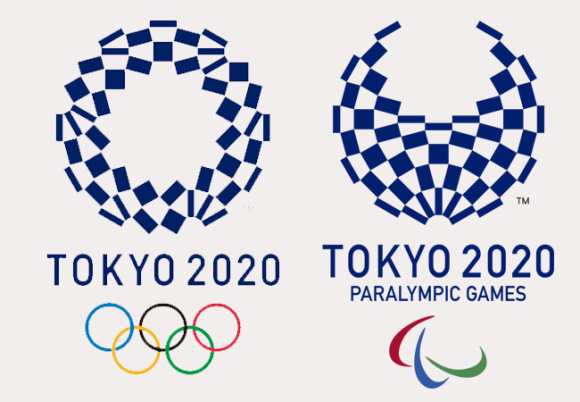
The end of July saw the unprecedented election of Tokyo’s first woman governor, who quickly went to work fulfilling her campaign promises, among them paring down the costs of hosting the 2020 Olympics. The Summer Olympiad has been racked with bad press including controversy over the Olympic Stadium, earlier allegations that the original Olympic logo had been plagiarized, and continuing ballooning budgets.
Koike has promised more transparency in Olympic budgets, and as a result of her investigations, the costs for Ariake Arena have been reduced from ¥40.4 billion to ¥33.9 billion, the aquatics center from ¥49.1 billion to ¥29.8 billion, and the canoeing venue from ¥68.3 billion to ¥52 billion.
9. 君の名は – Your Name
Anime film director Makoto Shinkai released Your Name which proved to be a hit both abroad and in Japan, earning it the highest accolades. The RocketNews24 writer who nominated Your Name for the Top Ten says the movie enjoyed completely unexpected levels of success, a product of its polished visuals and bittersweet romance angle coinciding with anime approaching mainstream acceptance level. It’s the first theatrical anime in a long time that doesn’t rely on otaku cred, kid-friendliness, or Studio Ghibli prestige, and the way it gives equal time to both the male and female lead’s perspective of the romance makes it arguably the first “anime date movie” ever. The continuing popularity of the movie seems to show that many people agree!
10. ピコ太郎 – Piko Taro and PPAP
YouTube/公式ピコ太郎歌唱ビデオチャンネル -PIKOTARO OFFICIAL CHANNEL-
Kazuhiko Kosaka (aka Daimaou Kosaka), but better known as Piko Taro, is the performer behind the ubiquitous Pen-Pineapple-Apple-Pen song (PPAP). Our RocketNews24 writer who nominated Piko Taro and PPAP says, “What started out as one bizarre hit turned into a number of mind-blowing spin-offs that included popular characters like Ryuk from Death Note, and Elmo and Cookie Monster from Sesame Street.”
Along with the PPAP Tokyo pop-up cafe and the fact that the song was awarded a Guinness World Record for being the shortest song to make the Billboard Top 100 in the U.S., Piko Taro was also believed to have been one of the influences on the Kanji of the Year for 2016, being designated 金 (kin) or gold (Pico Taro wears gold while performing PPAP). Released as a single in August 25 on YouTube, the video has gone viral, amassing over one million views per day. We think PPAP is a great way to end a tumultuous year!
There you have it: RocketNews24 picks for the top ten events in Japan for 2016. Let’s hope the Year of the Chicken will offer just as many golden eggs.
What event would you have nominated for the top ten list?
Featured Image: YouTube/公式ピコ太郎歌唱ビデオチャンネル -PIKOTARO OFFICIAL CHANNEL-
Sources: Japan Times, New York Times, Japan Today

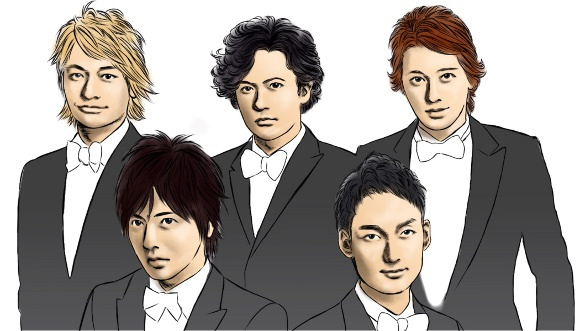
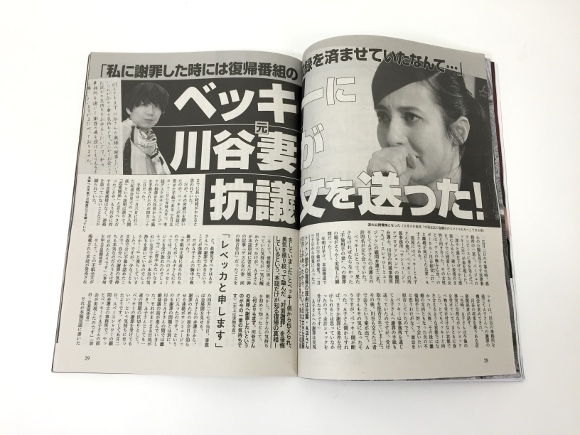
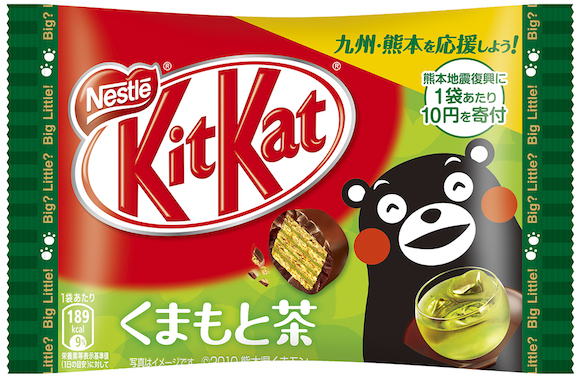
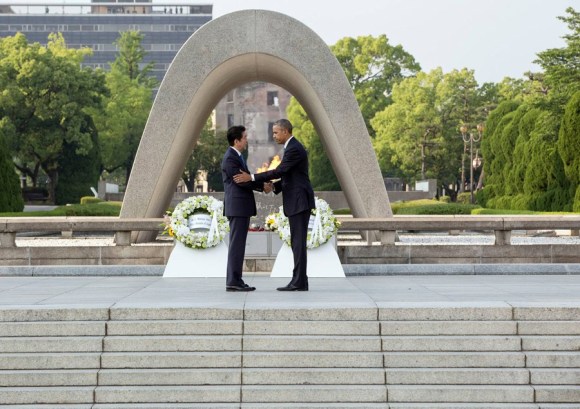
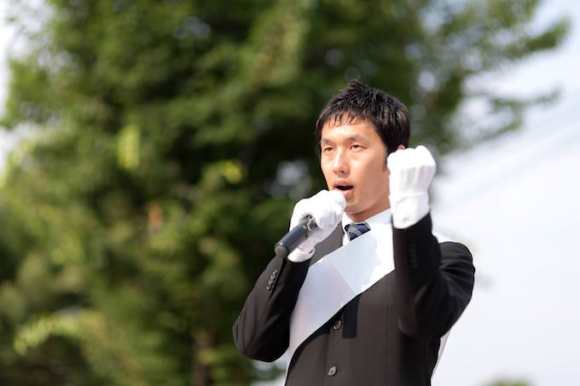
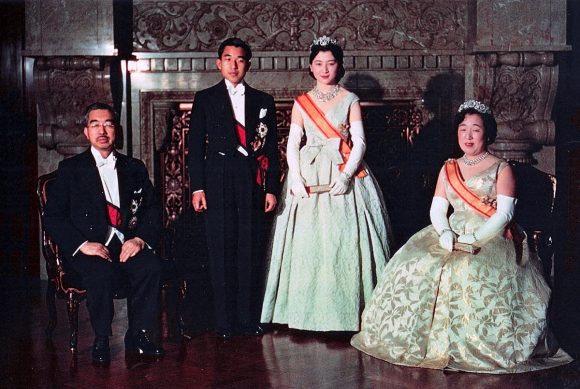

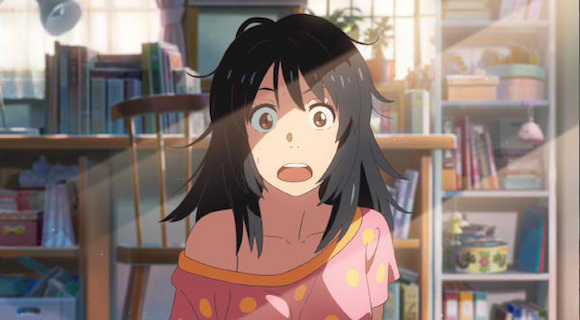
 Japanese restaurant chain serves Dragon Ball donuts and Senzu Beans this spring
Japanese restaurant chain serves Dragon Ball donuts and Senzu Beans this spring Starbucks Japan releases first-ever Hinamatsuri Girls’ Day Frappuccino
Starbucks Japan releases first-ever Hinamatsuri Girls’ Day Frappuccino The fish in rural Fukui that rivals Japan’s most auspicious sea bream
The fish in rural Fukui that rivals Japan’s most auspicious sea bream Japan’s craziest burger chain takes menchi katsu to new extreme levels
Japan’s craziest burger chain takes menchi katsu to new extreme levels Tokyo street sweets: The must-snack treats of Nakano’s Refutei
Tokyo street sweets: The must-snack treats of Nakano’s Refutei Japanese restaurant chain serves Dragon Ball donuts and Senzu Beans this spring
Japanese restaurant chain serves Dragon Ball donuts and Senzu Beans this spring Starbucks Japan releases first-ever Hinamatsuri Girls’ Day Frappuccino
Starbucks Japan releases first-ever Hinamatsuri Girls’ Day Frappuccino The fish in rural Fukui that rivals Japan’s most auspicious sea bream
The fish in rural Fukui that rivals Japan’s most auspicious sea bream Japan’s craziest burger chain takes menchi katsu to new extreme levels
Japan’s craziest burger chain takes menchi katsu to new extreme levels Tokyo street sweets: The must-snack treats of Nakano’s Refutei
Tokyo street sweets: The must-snack treats of Nakano’s Refutei Survey finds more than 70 percent of Japanese children have an online friend
Survey finds more than 70 percent of Japanese children have an online friend Top Secret Cookie Recipe Finally Comes to Light
Top Secret Cookie Recipe Finally Comes to Light McDonald’s ad in Japan causes controversy overseas
McDonald’s ad in Japan causes controversy overseas Which convenience store onigiri rice balls are the most popular? Survey reveals surprising results
Which convenience store onigiri rice balls are the most popular? Survey reveals surprising results Is the magical Flying Ball that’s trending on Japanese TikTok as easy to use as it looks?
Is the magical Flying Ball that’s trending on Japanese TikTok as easy to use as it looks? Highest Starbucks in Japan set to open this spring in the Tokyo sky
Highest Starbucks in Japan set to open this spring in the Tokyo sky Tokyo Skytree turns pink for the cherry blossom season
Tokyo Skytree turns pink for the cherry blossom season Yakuzen ramen restaurant in Tokyo is very different to a yakuza ramen restaurant
Yakuzen ramen restaurant in Tokyo is very different to a yakuza ramen restaurant Japan Extreme Budget Travel! A trip from Tokyo to Izumo for just 30,000 yen [Part 1]
Japan Extreme Budget Travel! A trip from Tokyo to Izumo for just 30,000 yen [Part 1] Japan has only one airport named after a samurai, so let’s check out Kochi Ryoma【Photos】
Japan has only one airport named after a samurai, so let’s check out Kochi Ryoma【Photos】 Japanese drugstore sells onigiri at pre-stupid era prices, but how do they compare to 7-Eleven?
Japanese drugstore sells onigiri at pre-stupid era prices, but how do they compare to 7-Eleven? Burning through cash just to throw things away tops list of headaches when moving house in Japan
Burning through cash just to throw things away tops list of headaches when moving house in Japan Starbucks Japan releases new sakura goods and drinkware for cherry blossom season 2026
Starbucks Japan releases new sakura goods and drinkware for cherry blossom season 2026 Japan’s newest Shinkansen has no seats…or passengers [Video]
Japan’s newest Shinkansen has no seats…or passengers [Video] Foreigners accounting for over 80 percent of off-course skiers needing rescue in Japan’s Hokkaido
Foreigners accounting for over 80 percent of off-course skiers needing rescue in Japan’s Hokkaido Super-salty pizza sends six kids to the hospital in Japan, linguistics blamed
Super-salty pizza sends six kids to the hospital in Japan, linguistics blamed Starbucks Japan unveils new sakura Frappuccino for cherry blossom season 2026
Starbucks Japan unveils new sakura Frappuccino for cherry blossom season 2026 Foreign tourists in Japan will get free Shinkansen tickets to promote regional tourism
Foreign tourists in Japan will get free Shinkansen tickets to promote regional tourism The 10 most annoying things foreign tourists do on Japanese trains, according to locals
The 10 most annoying things foreign tourists do on Japanese trains, according to locals Take a trip to Japan’s Dododo Land, the most irritating place on Earth
Take a trip to Japan’s Dododo Land, the most irritating place on Earth Naruto and Converse team up for new line of shinobi sneakers[Photos]
Naruto and Converse team up for new line of shinobi sneakers[Photos] Is China’s don’t-go-to-Japan warning affecting the lines at a popular Tokyo gyukatsu restaurant?
Is China’s don’t-go-to-Japan warning affecting the lines at a popular Tokyo gyukatsu restaurant? Survey asks foreign tourists what bothered them in Japan, more than half gave same answer
Survey asks foreign tourists what bothered them in Japan, more than half gave same answer Japan’s human washing machines will go on sale to general public, demos to be held in Tokyo
Japan’s human washing machines will go on sale to general public, demos to be held in Tokyo Starbucks Japan releases new drinkware and goods for Valentine’s Day
Starbucks Japan releases new drinkware and goods for Valentine’s Day We deeply regret going into this tunnel on our walk in the mountains of Japan
We deeply regret going into this tunnel on our walk in the mountains of Japan Studio Ghibli releases Kodama forest spirits from Princess Mononoke to light up your home
Studio Ghibli releases Kodama forest spirits from Princess Mononoke to light up your home Major Japanese hotel chain says reservations via overseas booking sites may not be valid
Major Japanese hotel chain says reservations via overseas booking sites may not be valid Put sesame oil in your coffee? Japanese maker says it’s the best way to start your day【Taste test】
Put sesame oil in your coffee? Japanese maker says it’s the best way to start your day【Taste test】 No more using real katana for tourism activities, Japan’s National Police Agency says
No more using real katana for tourism activities, Japan’s National Police Agency says Survey finds more than 70 percent of Japanese children have an online friend
Survey finds more than 70 percent of Japanese children have an online friend Top Secret Cookie Recipe Finally Comes to Light
Top Secret Cookie Recipe Finally Comes to Light McDonald’s ad in Japan causes controversy overseas
McDonald’s ad in Japan causes controversy overseas Which convenience store onigiri rice balls are the most popular? Survey reveals surprising results
Which convenience store onigiri rice balls are the most popular? Survey reveals surprising results Is the magical Flying Ball that’s trending on Japanese TikTok as easy to use as it looks?
Is the magical Flying Ball that’s trending on Japanese TikTok as easy to use as it looks? Drift ice in Japan is a disappearing winter miracle you need to see now
Drift ice in Japan is a disappearing winter miracle you need to see now Can we be just like Shohei Ohtani on a budget with a Hello Kitty cap?
Can we be just like Shohei Ohtani on a budget with a Hello Kitty cap? Japan Extreme Budget Travel! A trip from Tokyo to Izumo for just 30,000 yen [Part 2]
Japan Extreme Budget Travel! A trip from Tokyo to Izumo for just 30,000 yen [Part 2] How to make an awesome Japanese summer dessert using only things you can buy at Daiso【SoraKitchen】
How to make an awesome Japanese summer dessert using only things you can buy at Daiso【SoraKitchen】 Japanese drugstore sells onigiri at pre-stupid era prices, but how do they compare to 7-Eleven?
Japanese drugstore sells onigiri at pre-stupid era prices, but how do they compare to 7-Eleven? Visiting Shohei Ohtani’s official manhole lid in his hometown and more
Visiting Shohei Ohtani’s official manhole lid in his hometown and more In Hokkaido there’s weed, weed everywhere, but not a drop to smoke
In Hokkaido there’s weed, weed everywhere, but not a drop to smoke